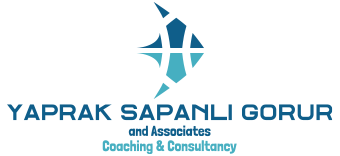Leadership is surrounded by crowds yet also can be such a lonely position to be.
Massive crowds will surround the leader. The leader becomes the center of attention. Those crowds whistle to the leader’s ears: advice, input, feedback, a perspective, and sometimes those crowds may lead to an inflated self-confidence.
On the flip side, the leaders may often feel that the job is lonely, as there will be fewer people who will be providing honest, “real,” and “bitter” feedback. The input of the advice itself becomes filtered. In some cases, the leader will not be so open to listening to controversial information. They become selective and surround themselves with people who think like themselves and start to live in a limited bubble.
This situation reminds me of “The Emperor’s New Clothes” the story by Hans Christian Andersen. Up until a little child desperately calls it out loud that “the king is naked,” the crowd will be shy to confront the reality. (https://andersen.sdu.dk/vaerk/hersholt/TheEmperorsNewClothes_e.html)
Working with my Clients
As I work with my clients, typically towards the end of our journey, they ask me, “What am I missing?” or “What have we not covered that I should be thinking, so that I become a better leader?”
My question to them is: “Who do you have on your Personal Board of Directors?” An interesting yet very simple concept. Suppose you are the CEO of your current role; who would you appoint as your Board of Directors? Who do you have on this list as of today, and who should you add?
The answer can often be: “Oh, I have a great network that I can easily tap into,” or “I have mentors that I can always seek for advice.” or ” I have never thought of this concept, which is important.”
So how shall we think of this simple concept? What is it, and what is not?
Let’s take a look at it briefly.
So what is a Board of directors?
According to Wikipedia, the Board of director is:
“A group of people who jointly supervise the activities of an organization, which can be either a for-profit or a nonprofit organization such as a business, nonprofit organization, or a government agency.” (https://en.wikipedia.org/wiki/Board_of_directors)
According to the Corporate Finance Institute, a board of director is: “essentially a panel of people who are elected to represent shareholders. Every public company is legally required to install a board of directors; nonprofit organizations and many private companies – while not required to – also name a board of directors.”(https://corporatefinanceinstitute.com/resources/careers/jobs/board-of-directors/)
What do we mean by appointing a “personal board of directors”?
It is electing people who we would seek diverse perspectives on a topic or would seek their advice. An advisor who will challenge us to get out of our comfort zone, will provide a lens that we might be missing through our everyday interactions in daily life or provide us with the input we don’t want to hear. A strategist who will offer us a helicopter view of things and some long-term implications that we have not thought of before. A network circle that will help us connect the dots, see around the corners.
What is not?
This group is not just a group of mentors and share their own experience, not an advisory committee that will only tell us what to do or not to do.
How do you onboard a new “Personal Board of Directors”?
1. Identify. What do you want to achieve? What are your goals and aspirations?
2. Measure success. What will be your success criteria? How will you know that you reach your goal?
3. Select. Who can help you to achieve your goals the most? Look for diverse skills and perspectives. These people may come from your organization or outside of your organization. They may have experience in another field, another industry, occupation, or coming from totally a different generation than yours.
4. Connect. Find a time to connect with the people you identify; know why you want them to join your network explicitly. Be crystal clear about what you want to achieve. Have an answer to the question “why me?”
5. Set up a rhythm. Make it periodic, not just a one-time event. In today’s world, one of the most precious resources is time. Think about what should be the right frequency and the duration to connect.
6. Adjust. As you measure your success, make some adjustments to your personal Board of directors. Bring onboard new ones as your goals shift.
In Summary
For leaders looking for ways of developing themselves, growing their business, organization, and looking for ways to create the next big thing in their industry, they would benefit a lot from having a personal board of directors. This group should be honest and provide the most troublesome input, a diverse perspective that will keep the growth journey even sharper, and the journey won’t feel lonely anymore.


